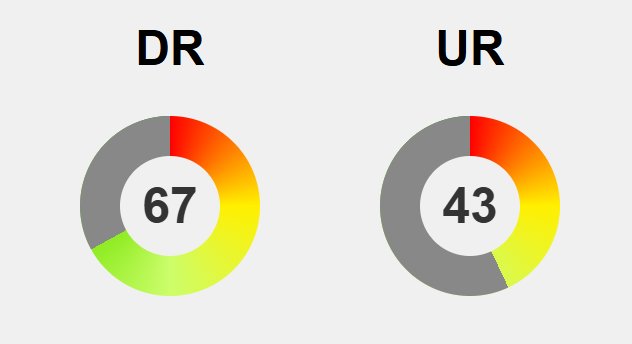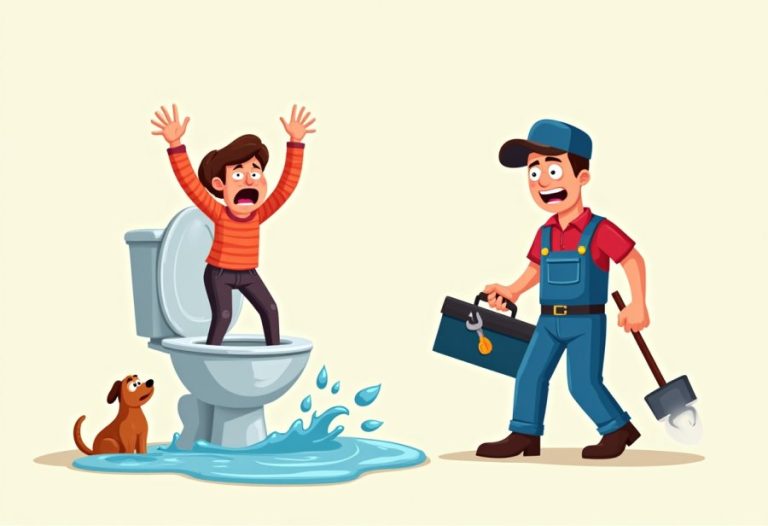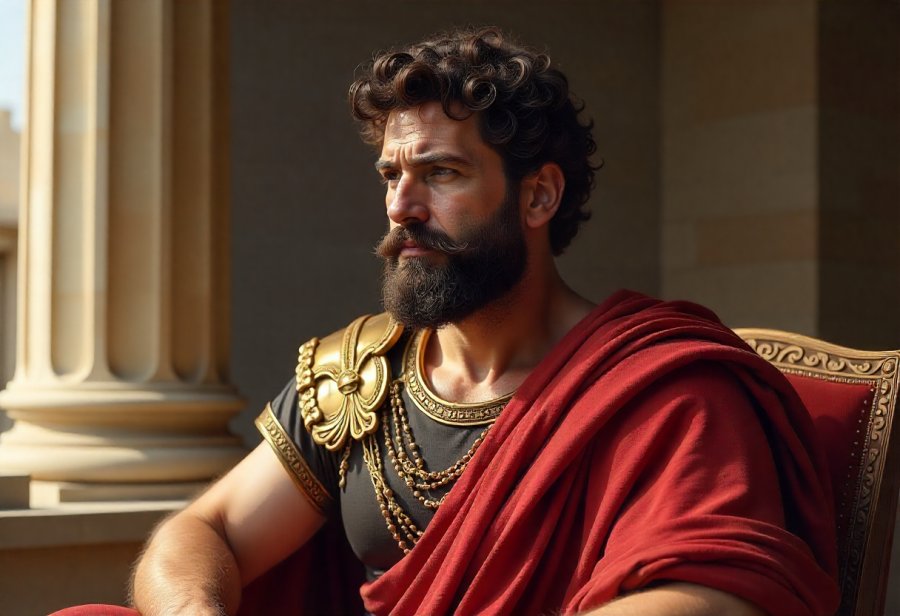
What if true strength isn’t measured by external conquests or titles, but by inner discipline and resilience? Marcus Aurelius, both a formidable emperor and a Stoic philosopher, exemplifies this paradox—leading vast armies and governing an empire while cultivating mastery over his mind and emotions. His life invites us to reconsider leadership: is it about outward victories or inward virtues? This exploration reveals that lasting influence stems from self-control, moral clarity, and calm amidst chaos. How do we develop such resilience? Through deliberate daily practices—reflection, mindfulness, resisting impulsive reactions—that reinforce inner strength over time. Marcus’s enduring legacy demonstrates that genuine power resides in governing oneself first, forging steadiness amidst turbulence, and inspiring trust through virtue. Embracing this path transforms not only our approach to leadership but also our understanding of true authority—raising the question: could internal mastery be the greatest empire of all?
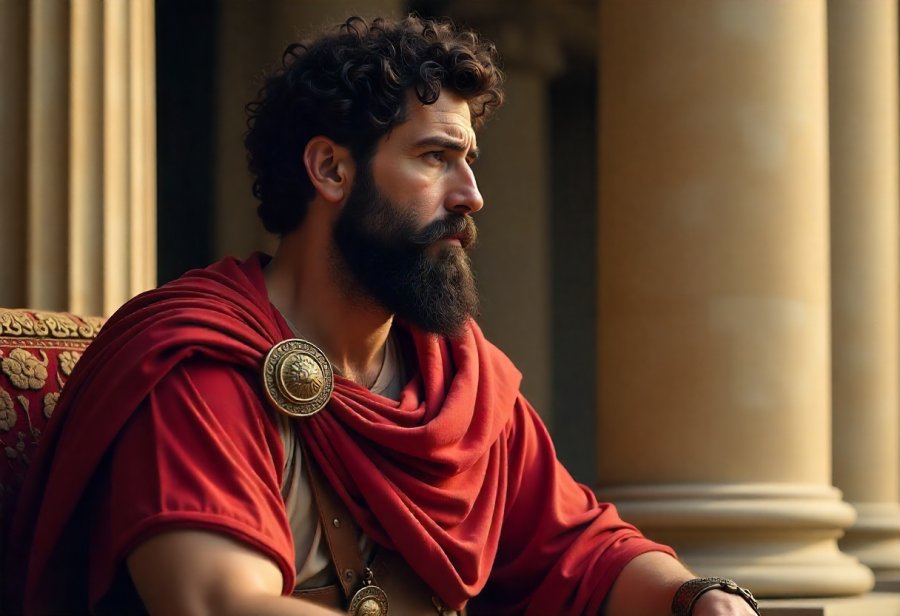
Inner Discipline as the True Source of Leadership Power
Leadership is often measured by visible achievements—winning battles, expanding territories, or holding influential titles. We tend to admire figures who conquer lands or command armies, equating external success with true strength. But beneath these outward displays lies a quieter, more enduring form of power: inner discipline. It’s that steady mastery over oneself that allows a leader to stay resilient in chaos, make thoughtful decisions under pressure, and inspire genuine loyalty. This inner strength isn’t flashy, but it’s the foundation that sustains effective leadership beyond fleeting victories.
Take Marcus Aurelius as a prime example. As Roman emperor and Stoic philosopher, his life shows that lasting leadership isn’t built solely on external conquest but on cultivating inner resilience and wisdom. Despite governing during turbulent times—wars, plagues, political upheaval—he prioritized self-control, reflection, and moral clarity. His writings in *Meditations* reveal a leader committed to mastering his mind and emotions, not just managing armies or territories. His strength stemmed from inner virtues that endured long after external achievements faded.
In today’s fast-paced world, this inner discipline is more vital than ever. External accomplishments can be fleeting, but the ability to remain calm, focused, and morally grounded amid chaos sets truly great leaders apart. Inner discipline—self-control, mental clarity, emotional resilience—becomes the bedrock that keeps leaders steady when everything around them shifts. It fosters consistency, builds trust, and provides stability others can rely on, especially when distractions and crises are constant.
This perspective challenges the common view that leadership is primarily about external control. Instead, it suggests that genuine strength lies in governing oneself. Marcus Aurelius’s example reminds us that wisdom, humility, and resilience are more powerful than any army or throne. When leaders focus on inner mastery, they create a steady core that can withstand external pressures and inspire confidence. True resilience, then, is less about outward victories and more about the quiet power of self-discipline.
Foundations of Marcus Aurelius’s Leadership and Stoic Wisdom
Marcus Aurelius’s approach to leadership and philosophy was shaped by a rich blend of early education, cultural influences, and personal experiences. From a young age, he immersed himself in Stoic teachings, studying under tutors who emphasized virtues such as self-control, resilience, and rationality. These lessons weren’t just abstract ideas; they became practical guides for navigating the immense responsibilities of ruling an empire. The Stoic focus on mastering one’s mind and emotions laid the foundation for his leadership style, emphasizing inner strength over external display.
The influence of earlier Stoic thinkers like Epictetus and Seneca played a crucial role in shaping Marcus’s worldview. Their writings offered concrete advice on maintaining inner calm amid external chaos and acting virtuously regardless of circumstances. Marcus studied these ideas deeply, internalizing the belief that authentic strength comes from within, not from possessions or external power. This philosophical grounding proved essential as he faced the pressures of governing a vast, often turbulent empire.
Roman culture itself valued philosophy as a practical discipline. Philosophers were respected advisors, and their teachings were integrated into the moral fabric of leadership. Marcus’s education reflected this tradition, blending classical learning with a focus on virtues like integrity, humility, and rational decision-making. These traits became his moral compass, guiding him through complex political and military challenges while maintaining his inner discipline.
As emperor, Marcus balanced military duties, political responsibilities, and philosophical pursuits. On campaign frontiers, he confronted invasions and unrest, demanding strategic decisions and resilience. Meanwhile, he managed court politics and internal administration, often retreating into reflection and journaling during moments of respite. These practices helped him stay centered, clear-minded, and morally grounded, even amid chaos. His daily reflections, which later formed the basis of *Meditations*, served as reminders to uphold virtues like patience and humility.
His ability to manage these demanding roles was rooted in inner discipline. Each external challenge became an opportunity to deepen his self-mastery. Whether facing wars along the Danube or dealing with the Antonine Plague, Marcus saw setbacks as lessons in resilience and moral growth. His unwavering focus on Stoic principles transformed crises into moments of reflection, reinforcing that true leadership begins with self-control.
Marcus’s choice to prioritize moral virtue over personal gain marked a defining aspect of his leadership. During ongoing conflicts and societal upheaval, he consistently emphasized resilience and service over ego-driven pursuits. This unwavering commitment to inner discipline allowed him to govern with authenticity and integrity, demonstrating that genuine strength arises from mastering oneself rather than external circumstances.
Throughout his reign, external hardships continually tested his inner resolve. Wars, plagues, and political upheavals challenged his leadership, but his consistent practice of Stoic virtues provided stability. This inner steadiness inspired trust and confidence among his followers, proving that resilience rooted in inner discipline is the true source of enduring leadership. Marcus’s life exemplifies how internal mastery sustains influence far beyond fleeting external successes.
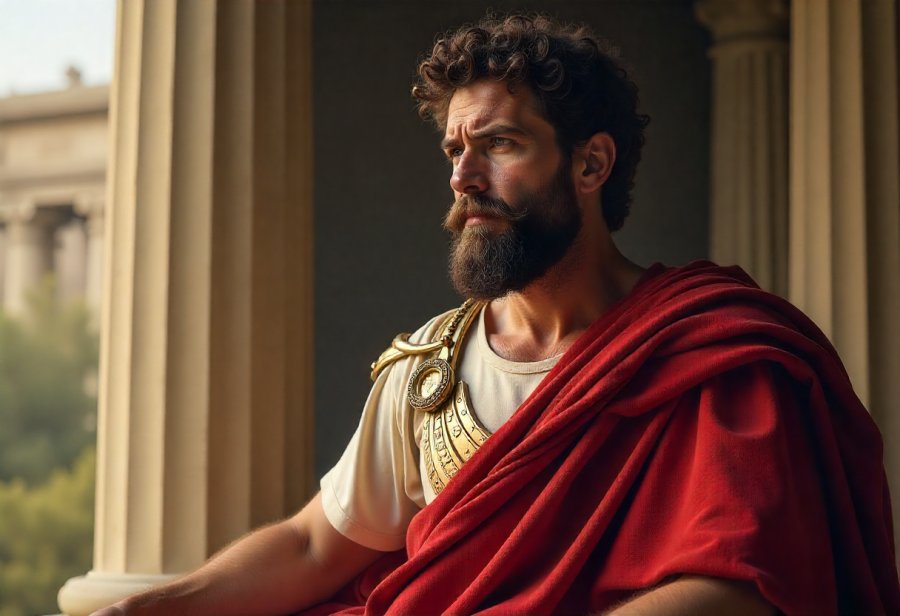
Stoic Principles That Foster Mental Resilience and Self-Control
Stoic philosophy centers on cultivating mental resilience and self-control as the bedrock of inner strength. It teaches us that while we cannot always influence external events, we have full authority over our reactions, emotions, and judgments. Developing this mastery begins with mindfulness—learning to observe our thoughts and feelings without immediate judgment or reaction. By practicing awareness, we create space between stimulus and response, enabling us to choose calm and rational actions rather than impulsive reactions.
A core Stoic principle is the distinction between what we can control and what we must accept. When we internalize this division, frustration over uncontrollable circumstances diminishes. Instead, we focus on managing ourselves—our attitudes, choices, and virtues—building a sense of stability that endures even in chaos. Marcus Aurelius often reminded himself that true strength lies in governing the mind, not external possessions or power, which are fleeting.
Acting with integrity and virtue under pressure reinforces inner resilience. When leaders govern their passions and fears, they project stability that inspires trust. This internal discipline isn’t about suppressing feelings but about understanding and directing them. It’s about cultivating patience, humility, and justice—virtues that serve as moral anchors during turbulent times. Such virtues strengthen our resolve and help us navigate adversity without losing our moral compass.
This approach transforms leadership into an act of moral clarity. Instead of reacting emotionally or impulsively, a resilient leader responds thoughtfully, guided by reason and virtue. Marcus’s writings highlight that wisdom isn’t just knowledge but the consistent application of virtues like temperance and humility. Acting ethically, especially amidst external chaos, reinforces inner strength and authenticity, qualities that resonate deeply with others.
The universality of Stoic resilience extends beyond ancient Greece and Rome. Many cultures and philosophies emphasize the importance of inner stability—whether through mindfulness, meditation, or moral discipline. These practices all aim to steady the mind amid external turbulence. Cultivating this inner strength isn’t an abstract ideal but a practical skill that can be developed through daily effort and reflection.
Building mental resilience requires deliberate practice. Small acts—such as pausing before reacting, reframing setbacks as lessons, or maintaining a gratitude mindset—strengthen inner discipline over time. Consistency is key; each moment of self-control lays a foundation for greater resilience. Over time, these habits become second nature, allowing us to face challenges with calm and clarity.
In moments of crisis, this cultivated inner discipline becomes our most reliable resource. Leaders who practice steady reflection and emotional regulation can remain focused and composed, even when external circumstances are chaotic. Their calm presence not only guides their own actions but also inspires confidence and trust in others. Ultimately, mastering oneself through Stoic principles turns inner resilience into a powerful, enduring force—one that sustains leadership beyond fleeting external victories.
For those interested in deepening their understanding of these principles, exploring resources on Stoic philosophy can be highly beneficial. Embracing these teachings through accessible platforms can help integrate Stoic resilience into daily life. To learn more, you might find this insightful guide on Stoic principles that foster mental resilience and self-control particularly helpful.
Practical Steps to Cultivate Self-Mastery and Inner Resilience
Building inner discipline begins with small, intentional steps that can easily become daily habits. Starting with a few minutes of reflection each day—whether through journaling, meditation, or simply pausing to breathe and think—sharpens self-awareness. As you become more attuned to your emotional reactions and impulses, it becomes easier to pause before responding, creating space for thoughtful action. Over time, these moments of mindfulness strengthen mental clarity and emotional resilience, which are essential for staying steady when life’s pressures mount.
Practicing self-control also involves setting clear goals and intentionally resisting temptations or distractions. For example, choosing to stay calm during a disagreement or focusing deeply on a task instead of giving in to impulses trains the mind to govern responses more effectively. Repeating these acts of discipline regularly turns them into habits, reinforcing your capacity for resilience. The key is persistence—each time you resist an immediate urge or pause before reacting, you build inner strength and deepen your self-mastery.
Real-life situations make these practices tangible. During workplace conflicts, a leader who listens carefully and responds thoughtfully instead of reacting defensively sets a constructive tone. Facing personal setbacks with acceptance rather than despair demonstrates resilience in action. These deliberate choices to exercise restraint and patience aren’t just about handling the moment—they shape your overall ability to remain grounded amid chaos.
Challenges to inner discipline are natural—desire for quick gratification, emotional reactivity, external distractions. Recognizing these hurdles allows you to develop strategies, such as accountability partners, mindful breathing exercises, or breaking goals into smaller steps. Overcoming obstacles requires patience, but each success boosts confidence and reinforces your resolve to stay steady, gradually expanding your capacity for self-control.
Supportive tools can make this journey smoother. Journaling helps identify triggers that lead to reactive behavior and tracks progress. Mindfulness practices cultivate calmness and emotional regulation, making it easier to maintain composure when external pressures increase. Habit-tracking apps or checklists serve as reminders to stay disciplined and reflect on your intentions, creating a structure that encourages consistency. These small, daily efforts accumulate into lasting resilience.
In moments of crisis or intense stress, this cultivated inner discipline becomes your anchor. Leaders who practice steady reflection and emotional regulation are better equipped to guide others through uncertainty. Their calm presence inspires confidence and trust, demonstrating that true strength lies in governing oneself. Developing this inner resilience isn’t a one-time effort but an ongoing journey—each deliberate act of patience and self-control builds a foundation for leadership rooted in integrity and calm.

Embracing Continuous Growth to Lead with Inner Strength and Moral Clarity
Inner strength isn’t a one-and-done achievement; it’s an ongoing process that shapes how we face each new day. The lessons from Marcus Aurelius remind us that cultivating self-discipline and resilience requires consistent effort and reflection. Every small act of patience, each mindful pause, and every moment of deliberate choice gradually build a resilient mindset capable of weathering life’s inevitable ups and downs. Recognizing that growth is a steady journey keeps us committed, especially when progress feels slow or setbacks occur. These challenges become opportunities to deepen our inner mastery, strengthening our resolve and expanding our capacity for steady leadership.
Leadership rooted in inner discipline offers a steady anchor amid external chaos. When circumstances shift rapidly—whether through personal crises or broader societal upheavals—a leader who invests in their inner resilience remains calm and focused. This internal steadiness not only sustains us but also inspires confidence and trust in those we lead. Acting with integrity and patience, even in turbulent times, demonstrates that true power comes from within, not from external victories. Over time, this inner stability becomes a foundation that endures beyond fleeting successes or failures, guiding us through whatever lies ahead.
The path to inner strength is deeply personal, yet guided by universal principles. Regular reflection, mindfulness, and deliberate actions form the core of this lifelong journey. Small acts—resisting impulsiveness, reframing setbacks as lessons, practicing gratitude—each contribute to building mental fortitude. These daily efforts create a ripple effect, reinforcing our resilience and deepening our sense of purpose. Viewing setbacks as stepping stones rather than failures keeps motivation alive, reminding us that each challenge faced with patience and self-control enhances our inner mastery.
Looking forward, embracing this continuous practice can transform not only our leadership but our entire outlook on life. The more we dedicate ourselves to inner growth, the better equipped we become to navigate uncertainty with calm and clarity. Inner discipline becomes a wellspring of confidence, helping us find peace amid chaos and inspiring those around us through our steady example. Making self-mastery a daily habit aligns us more closely with virtues like wisdom, humility, and resilience—values that stand the test of time and circumstance. This ongoing journey leads us toward a deeper understanding of authentic leadership rooted in moral strength.
The legacy of Marcus Aurelius illustrates that genuine influence doesn’t hinge on external conquest but on governing oneself with moral clarity and tranquility. By shifting focus inward, he showed that true power arises from mastering the mind and emotions. As we develop inner discipline, we lay a foundation for leadership that is genuine, resilient, and enduring. Each step we take in strengthening our inner resolve brings us closer to becoming the kind of leader and person capable of inspiring others through quiet, unwavering resolve. This lifelong pursuit of inner mastery ultimately shapes a legacy far more lasting than fleeting external achievements.



